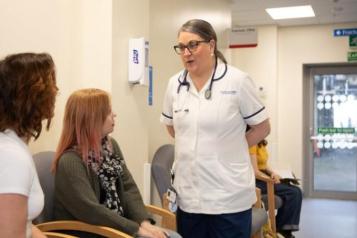NHS announces more personalised cervical screening for millions of women

Personalised cervical screening
From July, younger women (aged 25 to 49) who test negative for HPV, meaning they are at very low risk of cervical cancer over the next 10 years, will safely be invited at 5-year intervals rather than 3, in line with major clinical evidence.
Those whose sample indicates the presence of HPV or who have a recent history of HPV, which causes nearly all cervical cancers, will continue to be invited to more frequent screenings to check HPV has cleared and if not, if any cell changes have developed.
The move follows a recommendation by the UK National Screening Committee, and is the approach already used for women aged 50 to 64 in England.
HPV does not mean that you have or will develop cervical cancer. It is a common virus that most people will have at some point in their life without knowing, which usually goes away on its own. If HPV is found in your sample and there are no cell changes, you are invited for a screening again in 1 year.
If HPV is found alongside cell changes, you are referred directly to a hospital clinic for a colposcopy to check the cervix more closely. Further follow up and treatment will depend on the colposcopy findings.
How to attend a cervical screening
The NHS has rolled-out digital invitations and reminders this week for cervical screening via the NHS App, as part of a new ‘ping and book’ service to boost uptake and help save thousands of lives.
Eligible women will first receive a notification through the app to alert them to book a screening appointment, followed by a text message if the app notification isn’t opened. Letters will remain in place for those who need them.
Studies have shown that if a person tests negative for HPV they are extremely unlikely to go on to develop cervical cancer within the next decade, leading to a UK National Screening Committee recommendation to offer more personalised intervals for women based on their risk.
Analysis of a pilot of this approach in England, led by King’s College London researchers and published in the BMJ in 2022, showed that 5-yearly screening is as safe as 3-yearly, that the same number of cancers are found, and less frequent cervical screening tests are needed.
Find out more about this new approach here.


